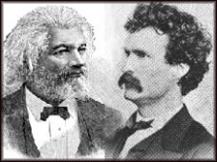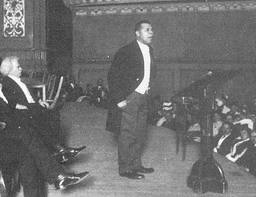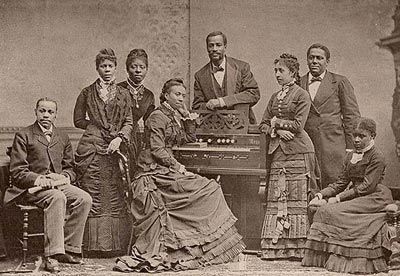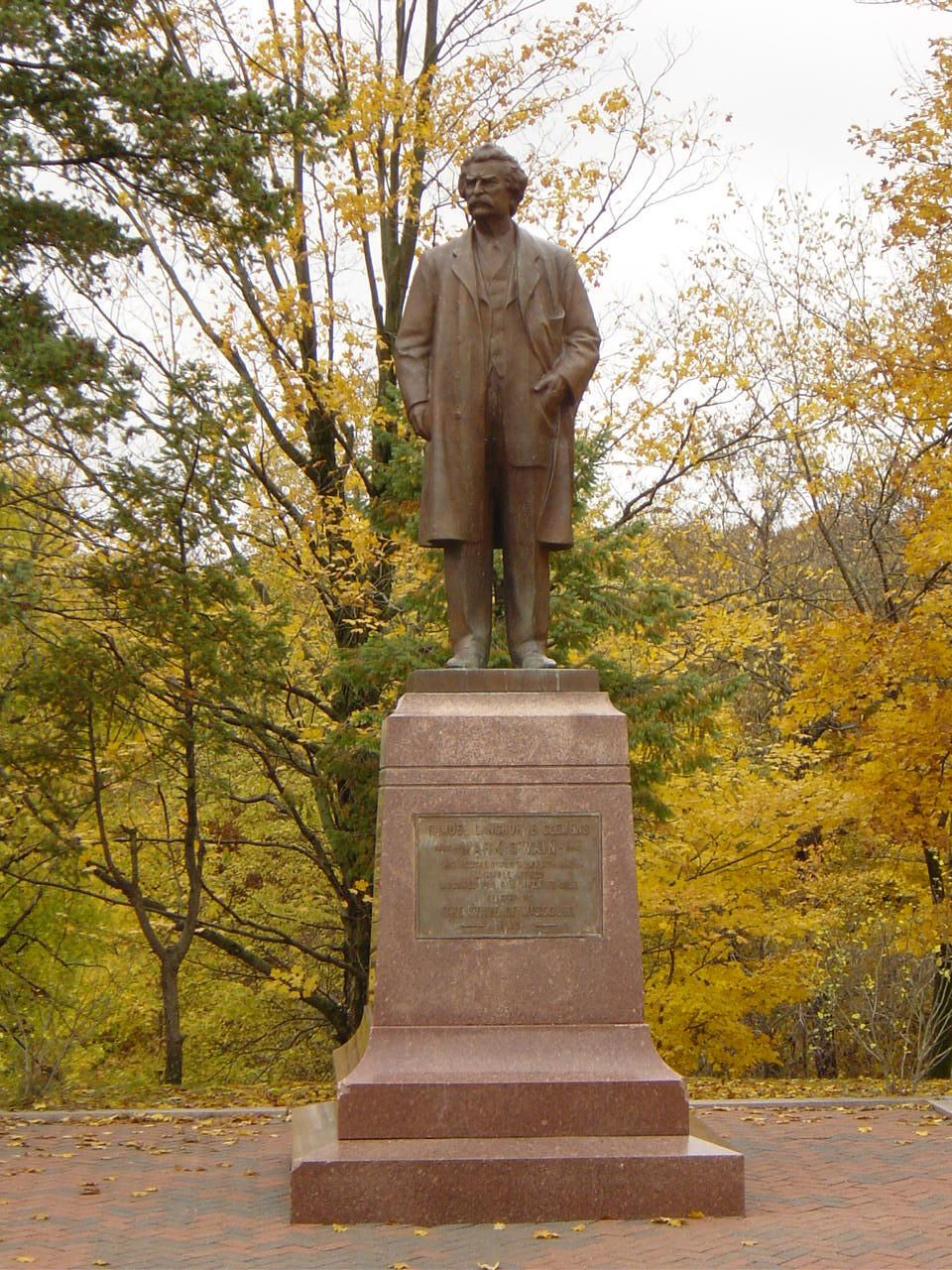"I think Mark Twain understood that if America was going to be the nation that it started out to be, the problem of race had to be solved. And I think he realized that it wasn't being solved. Mark Twain told the truth."
David Bradley, Mark Twain: A Film Directed by Ken Burns.
Get to know him as a man who fought for human rights and against racism. Meet Samuel Clemens, who supported the efforts of many African Americans. Here are a few examples:
Twain wrote to President-elect James Garfield (who he had campaigned for), requesting a favor for Frederick Douglass, who was about to lose his position as Marshal of the District of Columbia: "I offer this petition with peculiar pleasure and strong desire, because I so honor this man's high and blemishless character and so admire his brave, long crusade for the liberties and elevation of his race. He is a personal friend of mine, but that is nothing to the point; his history would move me to say these things without that, and I feel them too." Douglass received a federal appointment after Twain sent this letter.
Twain sponsored, financially and otherwise, other African Americans throughout the 1880s until his bankruptcy in 1894. Twain supported Warner T. McGuinn through Yale Law School until he graduated in 1887.
In 1882, Twain contributed to the financial needs of theology student, A.W. Jones, studying at Lincoln University in Philadelphia.
Twain supported
Tuskegee University by serving as co-chair of a major fundraiser in 1906.
On October 6, 1871, Twain's love of gospel music inspired him to support
Fisk University Jubilee Singers in their travels through the U.S. and abroad. Taking the entire contents of the University treasury with them for travel expenses, the singers hoped that they could raise enough money by giving concerts to keep their debt-ridden school open. They so electrified audiences that they traveled throughout the United States and Europe, moving audiences to tears. Their performances were attended by such notable people as William Lloyd Garrison, Wendell Phillips, Ulysses S. Grant, William Gladstone, Mark Twain, Johann Strauss, and Queen Victoria.
Twain also served as vice-president of the American Chapter of the Congo Reform Association.
FISK UNIVERSITY SINGERS. LISTEN TO A 1909 RECORDING FROM THE LIBRARY OF CONGRESS BELOW. CLICK HERE TO ACCESS OTHER RECORDINGS BY THE JUBILEE QUARTET.
THIS STATUE, LOCATED IN RIVERVIEW PARK, HANNIBAL, RECENTLY CELEBRATED ITS 100TH ANNIVERSARY.
THE PLAQUE ON ITS BASE READS:
SAMUEL LANGHORNE CLEMENS 1835- MARK TWAIN-1910 HIS RELIGION WAS HUMANITY AND A WHOLE WORLD MOURNED FOR HIM WHEN HE DIED ERECTED BY THE STATE OF MISSOURI




